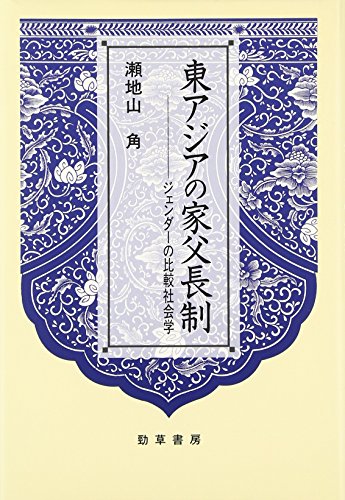4 0 0 0 OA 東アジア版「イエ社会論」へ向けて
- 著者
- 瀬地山 角
- 出版者
- 日本家族社会学会
- 雑誌
- 家族社会学研究 (ISSN:0916328X)
- 巻号頁・発行日
- vol.9, no.9, pp.11-21,135, 1997-07-25 (Released:2010-02-04)
- 参考文献数
- 13
This paper discusses connections between traditional family systems and institutional organizations in three East Asian societies. As many “ie-soiety” theorists have noted, the family unit in Japan served as a structural model for various institutions, most notably business corporations, during the early period of modernization in Japan. The ie (stem family) system, which emphasized continuity and seniority, but allowed for a flexible system of adoption, provided businesses with a structure that maintained a high level of integrity among its employees based on a system of seniority.Similar trends can be observed in both China and Korea. The preponderance of small businesses typical to Taiwan and Chinese diaspora stem from the traditional Chinese family system, which placed less emphasis on seniority among brothers. Likewise, Korean chaebolscan be traced to the Korean family system, which placed a higher priority on blood relationships than the Japanese family system, and a greater emphasis on seniority than the Chinese family system.
3 0 0 0 OA 東アジアにおける女性の「社会進出」の比較
- 著者
- 瀬地山 角
- 出版者
- 日本家族社会学会
- 雑誌
- 家族社会学研究 (ISSN:0916328X)
- 巻号頁・発行日
- vol.5, no.5, pp.31-36,138, 1993-07-25 (Released:2009-08-04)
- 参考文献数
- 9
- 被引用文献数
- 1 1
This paper reviews the genesis and change of housewives in East Asian societies : Japan, South Korea, Taiwan, North Korea and China. To recognize the housewife as a historical product is to admit the possibility of its disappearance. Although East Asian societies have often been treated together as a Confucian cultural sphere, the present and future status of women in these societies are remarkbly different. In socialist societies virtually all women are supposed to work in the name of "women's liberation" but the status of women is not all the same. In North Korea patriarchal traditions are so well preserved that household chores are done solely by women, whereas in China men's participation in housework is quite prevalent. Patriarchy in Taiwan does not particularly emphasize motherhood as the most inportant female role and working outside the home is often considered one of women's responsibilities. Housewives in Taiwan, therefore, are most likely to follow the American type of the vanishing housewife. By contrast Korean housewives are still largely confined to their homes and transition to the next stage is quite unlikely because of strong Confucian influence just like in their Northern counterpart. In Japan, mothering still remains an essential role for married women and therefore prevent housewives from proceeding to the next stage although Japan is for more advanced than Taiwan in the economic sense.
2 0 0 0 OA 発展途上国における都市貧困層のコミュニティ形成に関する国際比較研究
1 0 0 0 家父長制の比較社会学 : 東アジアを中心に
1 0 0 0 東アジアの家父長制 : ジェンダーの比較社会学
1 0 0 0 OA 漢字文化圏の「近代」に関する総合的研究
- 著者
- 刈間 文俊 若林 正丈 村田 雄二郎 クリスティーン ラマール 生越 直樹 伊藤 徳也 代田 智明 瀬地山 角 高橋 満 古田 元夫 若林 正丈 黒住 真 代田 智明 深川 由紀子 生越 直樹 クリスティーン ラマール 高見澤 磨 楊 凱栄 谷垣 真理子 伊藤 徳也 瀬地山 角 田原 史起 有田 伸 岩月 純一
- 出版者
- 東京大学
- 雑誌
- 基盤研究(B)
- 巻号頁・発行日
- 2005
中国では、漢字が、簡略化や教育によって、血肉化され、作家達も、前近代的なものを凝視し続けた.戦前の日中関係では、日本の漢学者と漢字紙が大きな役割を果たした.戦後韓国は、漢字を駆逐する一方、伝統的な同姓不婚制度を再構築させ、台湾は、漢字を簡略化せず、80 年代以降には、多文化主義的な社会統合理念を形成した.それに対して、中国大陸では今や、漢字文化からも消費文化からも疎遠な農村が、自律と国家による制御の間で揺れ動いている.本研究は以上を実証的に解明した.
1 0 0 0 東アジアにおける性役割規範の比較社会学
今年度は北朝鮮と韓国で資料収集を行ったほか、資料の収集と整理を行い、最終的に単著として刊行する上での最終的な準備を行った。北朝鮮では簡単なインタビューや見学を行い、実情に対するある程度の感覚をつかむことができた。特に儒教と社会主義が絡んで独特のジェンダー規範が形成されていったことを後づけることができた点は大きな成果となった。社会主義としての中国との類似点のほかに同一の文化としての韓国との類似点を摘出できた点は本研究の独自の貢献であると考える。また韓国では統計資料などを中心に資料を集め、論文執筆への基礎作業を終えることができた。そうした成果についてはアジア経済研究所の研究会、ソウルや静岡での国際シンポジウム、日本社会学会・現代中国学会などさまざまな機会で発表し、批判を吸収してきている。アジア経済研究所の研究会での成果は佐藤・服部編『韓国・台湾の発展メカニズムの再検討(仮)』としてまもなく出版される予定であり、そのなかで私は家父長制という文化規範の考察を通じて、韓国・台湾の経済が似ているように見えて実はかなり違う様相を持つものであることを文化的側面から明らかにした。女子労働・肉体労働の評価といった点で伝統的文化規範の作用から大きな差異が生まれるのである。今年度後半からは主に単著の執筆に専念しており、本研究の成果は、博士論文として総合文化研究科に提出した後、勁草書房より『家父長制の比較社会学(仮)』として出版される予定となっている。
